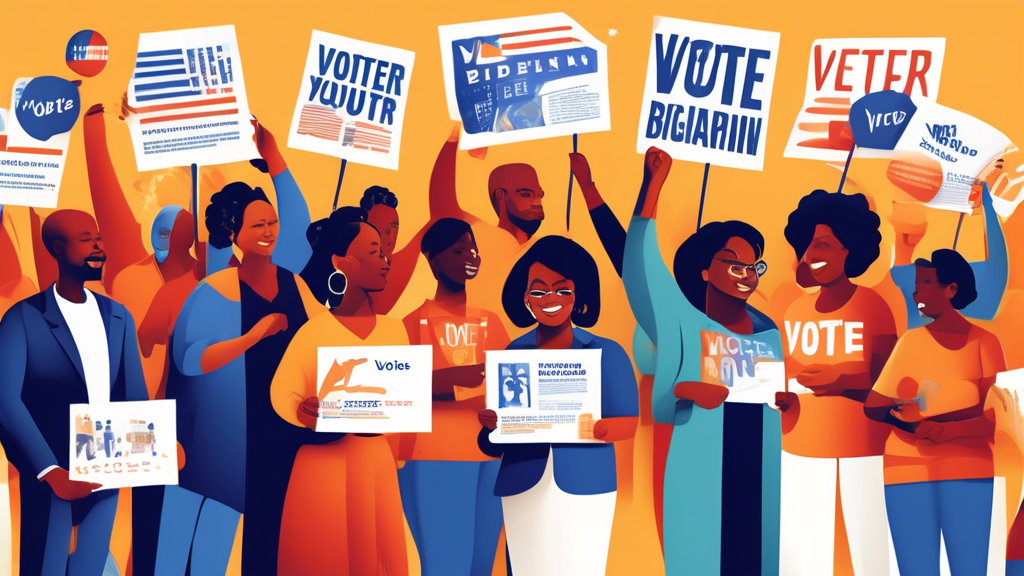
Biden-Harris Administration Allocated Billions to Coalition Collaborating with Stacey Abrams’ Organization Focused on Voter Mobilization
The Biden and Harris administration has committed billions of dollars to various initiatives that partner with organizations engaged in voter mobilization, particularly those linked to Stacey Abrams’ efforts. This allocation forms part of a wider strategy aimed at social and economic improvement, coinciding with the upcoming 2024 election cycle.
Funding and Partnerships
A significant portion of the federal budget is earmarked for programs that collaborate with community organizations focused on increasing voter participation. These partnerships are designed to leverage federal funds for grassroots mobilization, which includes voter registration, turnout campaigns, and related electoral activities.
Voter Mobilization Initiatives
The Biden administration’s funding encompasses a range of programs aimed at bolstering community resources. Organizations such as those led by Abrams are pivotal in this effort, utilizing financial support for enhanced voter registration and mobilization strategies. By investing in initiatives tailored to underserved and underrepresented communities, the administration hopes to increase electoral engagement and participation among demographics critical to the Democratic Party’s success.
Examples of Funded Programs
Among the programs benefiting from this substantial financial commitment are community development grants, health programs, and educational initiatives. These projects not only aim to improve lives but also serve a secondary purpose: enhancing the political engagement of their participants, thereby influencing voter mobilization indirectly.
Criticism and Implications
The administration’s approach has drawn scrutiny, with critics arguing that such funding could serve to skew electoral outcomes by intertwining government initiatives with partisan agendas. This raises significant concerns regarding the impartiality and ethical use of taxpayer dollars, particularly when these programs are seen as strategically timed ahead of a crucial election.
Legal and Ethical Considerations
There are legal and ethical implications associated with the allocation of federal funds toward initiatives aligned with political objectives. Questions arise concerning compliance with regulations that restrict the use of public money for advancing partisan interests. Such concerns underscore the necessity for transparency and accountability in government spending.
Political Context
As the 2024 elections approach, these funding decisions are not merely social investments; they represent a strategic maneuver by the Democratic Party to mobilize its base. By fostering engagement within key communities, the administration aims to translate grassroots efforts into electoral success, reflecting the interconnectedness of governance and political strategy.
In conclusion, the Biden-Harris administration’s financial commitment to voter mobilization efforts, particularly those associated with Stacey Abrams, represents a multifaceted approach to enhancing electoral participation. However, as these initiatives unfold, they will undoubtedly continue to spark debate regarding their implications for democracy and the ethical use of government resources.
